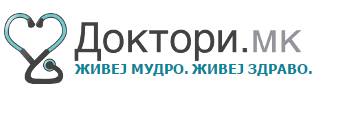JSER Policies
JSER Online
JSER Data
Frequency: quarterly
ISSN: 1409-6099 (Print)
ISSN: 1857-663X (Online)
Authors Info
- Read: 10658
|
ФУНКЦИОНИРАЊЕ НА ДЕЦАТА ЗАБОЛЕНИ ОД МАЛИГНИ БОЛЕСТИ ВО СОЦИЈАЛНАТА СРЕДИНА
Горан НЕДОВИЌ1
Факултет за специјална едукација |
|
SOCIAL FUNCTIONING OF CHILDREN WITH MALIGNANT DISEASES
Goran NEDOVIKJ1
Faculty for Special Education and Rehabilitation in Belgrade1 |
||
|
Примено: 26. 09. 2009 |
|
Received: 26. 09. 2009 |
||
|
Резиме |
|
Abstract |
||
|
Целта на истражувањето е процена на функционирањето на децата заболени од малигни болести во социјалната средина. |
|
The purpose of the research was the assessment of the functioning of children with malignant diseases in the social surroundings. |
||
|
|
||||
|
|
|
|
||
|
Citation:Nedovikj G, Jachova Z, Rapaikj D. Social Functioning of Children with Malignant Diseases. J Spec Educ Rehab 2009; 10(3-4):7-27. |
||||
|
|
||||
|
Клучни зборови: малигна болест, социјална компетенција, специјална едукација и рехабилитација |
|
Key words: malignant disease, social competence, special education and rehabilitation |
||
|
Адреса за кореспонденција: |
|
Corresponding Address: |
||
|
Горан НЕДОВИЌ |
|
Goran NEDOVIKJ |
||
|
Факултет за специјална едукација |
|
Faculty for Special Education |
||
Share Us
Journal metrics
-
 SNIP 0.059
SNIP 0.059 -
 IPP 0.07
IPP 0.07 -
 SJR 0.13
SJR 0.13 -
 h5-index 7
h5-index 7 -
 Google-based impact factor: 0.68
Google-based impact factor: 0.68
10 Most Read Articles
- PARENTAL ACCEPTANCE / REJECTION AND EMOTIONAL INTELLIGENCE AMONG ADOLESCENTS WITH AND WITHOUT DELINQUENT BEHAVIOR
- RELATIONSHIP BETWEEN LIFE BUILDING SKILLS AND SOCIAL ADJUSTMENT OF STUDENTS WITH HEARING IMPAIRMENT: IMPLICATIONS FOR COUNSELING
- EXPERIENCES FROM THE EDUCATIONAL SYSTEM – NARRATIVES OF PARENTS WITH CHILDREN WITH DISABILITIES IN CROATIA
- INOVATIONS IN THERAPY OF AUTISM
- AUTISM AND TUBEROUS SCLEROSIS
- DIAGNOSTIC AND TREATMENT OPTIONS IN AUTISTIC SPECTRUM DISORDERS – AN OVERVIEW
- THE DURATION AND PHASES OF QUALITATIVE RESEARCH
- REHABILITATION OF PERSONS WITH CEREBRAL PALSY
- DISORDERED ATTENTION AS NEUROPSYCHOLOGICAL COGNITIVE DISFUNCTION
- HYPERACTIVE CHILD`S DISTURBED ATTENTION AS THE MOST COMMON CAUSE FOR LIGHT FORMS OF MENTAL DEFICIENCY
















